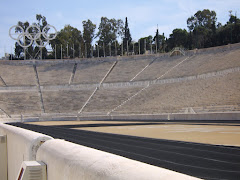The P.R. team for Schiffer Publishing reached out to offer a review copy of the new book "The Atlanta Rhythm Section: The Authorized History" by Willie Moseley.
Yes, please!
I don't think the publicist knew that in 1999 ARS was one of my first clients at The Headline Group.
 Along with "Spooky" (penned by the band's longtime manager and our main contact, Buddy Buie), during that springtime project I also came to appreciate ARS' Southern rock classics including "So Into You" and "Doraville" ("a touch of country in the city") as well as "Imaginary Lover" and "Champagne Jam."
Along with "Spooky" (penned by the band's longtime manager and our main contact, Buddy Buie), during that springtime project I also came to appreciate ARS' Southern rock classics including "So Into You" and "Doraville" ("a touch of country in the city") as well as "Imaginary Lover" and "Champagne Jam."
Our motto while publicizing the band's CD titled "Eufaula" -- named for the historic town near the Alabama/Georgia state line -- was "Do It Or Die."
We nearly did just that during a severe thunderstorm with too-close-for-comfort lightning that crept up during a live and lakeside Internet event with the band.
 If only the online audience had known we were chatting with them from a state park men's room while hunkered down during the cloudburst (the band's front man Ronnie Hammond was a good sport about this and many other interviews we secured).
If only the online audience had known we were chatting with them from a state park men's room while hunkered down during the cloudburst (the band's front man Ronnie Hammond was a good sport about this and many other interviews we secured).
 If only the online audience had known we were chatting with them from a state park men's room while hunkered down during the cloudburst (the band's front man Ronnie Hammond was a good sport about this and many other interviews we secured).
If only the online audience had known we were chatting with them from a state park men's room while hunkered down during the cloudburst (the band's front man Ronnie Hammond was a good sport about this and many other interviews we secured).
I found "The Authorized History" of ARS to be a quick read and it will be a fun text for longtime fans. Much of the book features the band's slow but steady rise to prominence during the early 1970s, peaking with some spectacular concerts during which the band shared top billing with Heart, Genesis, Foreigner, Tom Petty and the Heartbreakers and Jefferson Starship.
Interesting to learn that ARS presented the first rock (or any) concert at Georgia Tech's Grant Field, a venue that most recently hosted The Rolling Stones in 2015.
Pouring over Moseley's writing, I knew there'd be a five-ringed payoff, and sure enough there is, on page 204.
"Another memorable concert -- for the entire band -- happened [when] the Olympic Flag Jam, a grandiose event, was held at the Georgia Dome in Atlanta on September 17, 1992, to boost the upcoming 1996 Centennial Olympic Games that were scheduled for Atlanta.
 The Olympic flag was officially transferred from Barcelona, Spain, the site of the previous Olympiad. Overseen by Dick Clark and Whitney Houston, the event was attended by President George H.W. Bush and his wife."
The Olympic flag was officially transferred from Barcelona, Spain, the site of the previous Olympiad. Overseen by Dick Clark and Whitney Houston, the event was attended by President George H.W. Bush and his wife."
 The Olympic flag was officially transferred from Barcelona, Spain, the site of the previous Olympiad. Overseen by Dick Clark and Whitney Houston, the event was attended by President George H.W. Bush and his wife."
The Olympic flag was officially transferred from Barcelona, Spain, the site of the previous Olympiad. Overseen by Dick Clark and Whitney Houston, the event was attended by President George H.W. Bush and his wife."
The text goes on to describe the celebratory event as including Houston, Santana, Travis Tritt, Tricia Yearwood, Alabama, Garth Brooks, TLC and James Brown, and sports personalities including Richard Petty and Atlanta-based Olympian Edwin Moses, who autographed a set of bass strings belonging to an ARS member.
"My most vivid memory of playing at 'flag jam' was looking in the audience and seeing Coretta Scott King dancing along to us playing 'Champagne Jam,'" said Steve Stone, ARS bass and backing vocalist, according to the Moseley text.
The event marked ARS' second live performance for a sitting president, a follow up to their September 25, 1978, gig at The White House hosted by fellow a fellow Georgia native, President Jimmy Carter. Interesting to read about "the first rock band to play on the south lawn" at 1600 Pennsylvania Ave. and how the after party unfolded without much interference by Secret Service personnel.
It was gratifying to find mention of Buie's obituary in The New York Times which I personally pitched to the newspaper upon learning of Buddy's passing three years ago.
But, unfortunately, the book did not delve into much about the work our team from The Headline Group did in spring 1999, save mention of a spring picnic at which food from The Varsity was a treat and a noise complaint brought things to an early close (I was there!).
But I'm not gonna let it bother me tonight.
Photos via ARS, Schiffer Publishing and SI.com featuring AP photo by Scott Applewhite






















